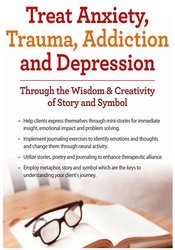
| File type | File name | Number of pages | |
|---|---|---|---|
| Manual 053285 (6.39 MB) | 106 Pages | Available after Purchase |
Sherry Reiter, PhD, LCSW, PTR-M/S, RDT-BCT, Registered Poetry Therapist/Mentor-Supervisor (PTR-M/S) and Registered Drama Therapist/ Board Certified Trainer (RDT-BCT), is an international speaker and author of Writing Away the Demons: Stories of Creative Coping Through Transformative Writing (North Star Press, 2009). As director of The Creative Righting Center, Dr. Reiter mentors helping professionals here and abroad. She is creator of Poets-Behind Bars. Dr. Reiter is a three-time national award winner for her visionary work in bibliotherapy, and was chosen as Teacher of the Year for Touro College in 2009.
She has been teaching Poetry Therapy for the Helping Professional at The New School for Social Research and Hofstra University for over 35 years. Dr. Reiter was a key force in the creation of The National Association for Poetry Therapy, and The International Federation for Biblio/Poetry Therapy, as well as on the steering committee of The National Association of Drama Therapy.
At 17, Dr. Reiter facilitated her first writing group with the elderly. She was astonished when Emma, who was 88, started to cry as she shared her writing: “All night long/the rain lashed at my window/and I was afraid.” Wherever Sherry worked – in locked psychiatric wards, recovery centers, group homes, recreation centers and schools – from the young to the old, people responded to word play, literature, and story with tears, laughter, and renewed hope.
In the 70’s Sherry learned there was a little-known field called poetry therapy. She devoted the next four decades learning, teaching and training helping professionals to incorporate transformative language into their work.
Speaker Disclosures:
Financial: Sherry Reiter is the director for The Creative Righting Center. She is an associate professor for Touro College. Dr. Reiter is an author for North Star Press and receives royalties. She receives a speaking honorarium from PESI, Inc. She has no relevant financial relationships with ineligible organizations.
Non-financial: Sherry Reiter is a member of the National Association of Social Workers.
Access never expires for this product.
| 5 |
|
| 4 |
|
| 3 |
|
| 2 |
|
| 1 |
|
Satisfaction Guarantee
Your satisfaction is our goal and our guarantee. Concerns should be addressed to: PO Box 1000, Eau Claire, WI 54702-1000 or email info@pesi.com.au.
Please wait ...